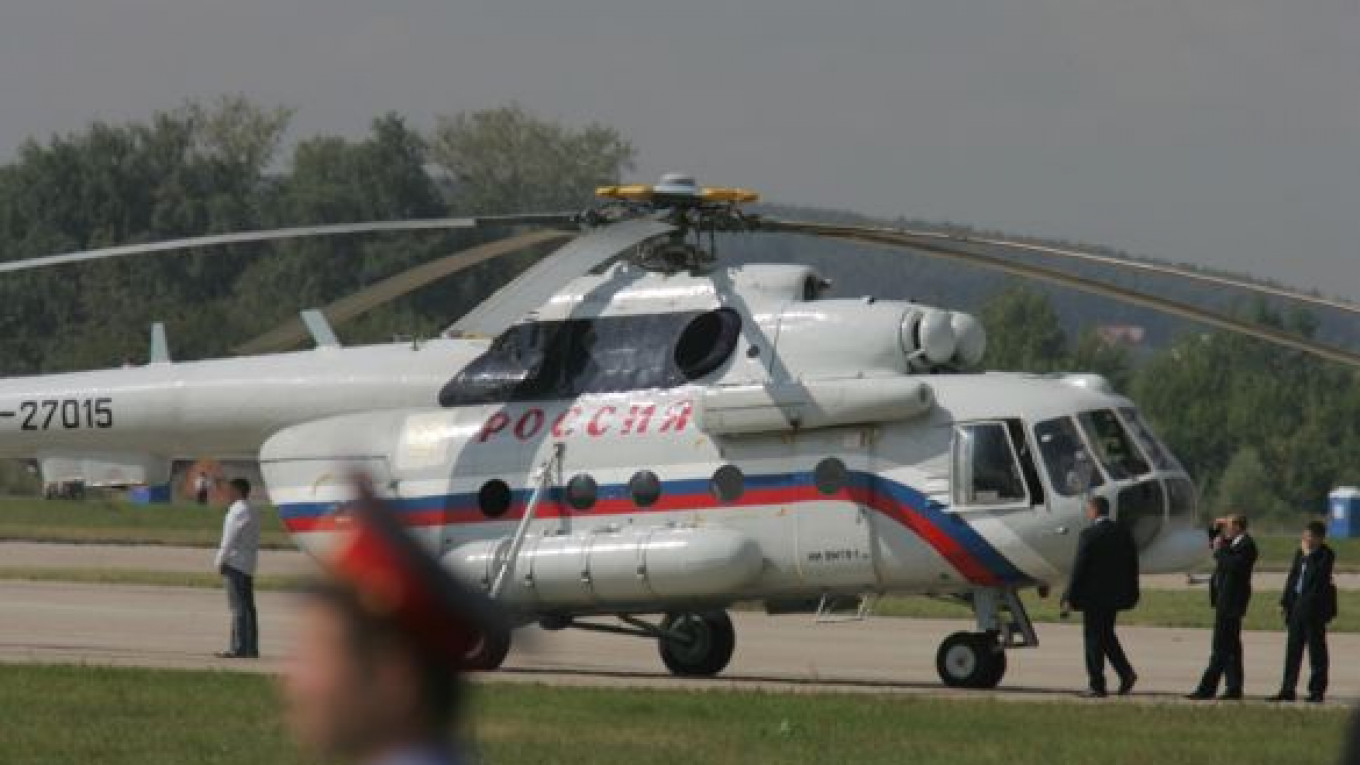Pentagon officials may be mismanaging a $2.6 billion program that buys foreign-made helicopters such as the Russian Mi-17 and provides them to U.S. allies, the Defense Department’s inspector general found.
U.S. defense officials “did not adequately manage the acquisition and support” of aircraft, the inspector general said in a summary released last week.
The Pentagon purchases the so-called non-standard rotary wing aircraft for allies whose pilots are less accustomed to U.S.-made helicopters. The Afghanistan and Pakistan armies are among military services that fly Mi-17 helicopters. Non-standard helicopters also include the MD-530F, AW-139 and Russian-made Mi-35s.
Since 2007, the Pentagon has spent more than $1.6 billion buying and supporting such helicopters and plans to spend an additional $1 billion, according to an executive summary of a report submitted to Congress by the inspector general. The summary was released on the inspector general’s web site.
Deputy Defense Secretary Ashton Carter in November 2010 consolidated Pentagon purchases of the helicopters under Army aviation oversight in Huntsville, Alabama.
“Specifically, Defense officials were unable to identify a comprehensive list of all [Department]-owned and supported Mi-17s, their total ownership costs and all planned requirements” to support the helicopters, according to the inspector general’s summary.
The Army office overseeing the helicopters hasn’t been fully empowered to make all decisions about the aircraft for the Pentagon, the summary found.
“As a result, the [Defense Department] may not have achieved the best value for the more than $1.6 billion” spent “and is at risk for inadequate management of more than $1 billion in estimated future costs,” the inspector general said.
The inspector general recommends that Pentagon leaders grant major defense acquisition program authority to the Army and improve its capability to implement buying practices for all Defense Department agencies.
The inspector general, in a separate audit, is reviewing the oversight, management and pricing of Mi-17 overhauls and the Pentagon’s ability to provide quality assurance for maintenance done at a Russian facility.
The watchdog agency also is assessing whether the Army contracting officer negotiated “fair and reasonable prices” for $100.4 million in modifications. It’s also assessing whether the program office approved $11 million to buy parts at potentially inflated prices.
“This investigation was conducted during the early stages of the project office’s initial creation,” said Army project manager Colonel Bert Vergez. “And the report reinforces the decision by the Defense Department to create it.”
“The office brings programmatic rigor and discipline to the situation that prior to its creation did not exist,” Vergez said. “Some of the shortcomings identified existed prior to the program office being established. The office is in the process of correcting and, in many cases, has corrected these shortcomings.”
Vergez’s office has a contract with Moscow-based Rosoboronexport arms exporter for 21 fully militarized Mi-17 choppers that include full Western avionics packages of navigation and communications equipment and are equipped to handle rockets and guns. The Army said they cost about $16.4 million apiece, including integrating the electronics.
The corporation operates as an intermediary agency for the export of Russian-made military equipment.
Nine of the helicopters were scheduled to be delivered by Dec. 30 for use by the Afghanistan Army.
A Message from The Moscow Times:
Dear readers,
We are facing unprecedented challenges. Russia's Prosecutor General's Office has designated The Moscow Times as an "undesirable" organization, criminalizing our work and putting our staff at risk of prosecution. This follows our earlier unjust labeling as a "foreign agent."
These actions are direct attempts to silence independent journalism in Russia. The authorities claim our work "discredits the decisions of the Russian leadership." We see things differently: we strive to provide accurate, unbiased reporting on Russia.
We, the journalists of The Moscow Times, refuse to be silenced. But to continue our work, we need your help.
Your support, no matter how small, makes a world of difference. If you can, please support us monthly starting from just $2. It's quick to set up, and every contribution makes a significant impact.
By supporting The Moscow Times, you're defending open, independent journalism in the face of repression. Thank you for standing with us.
Remind me later.






